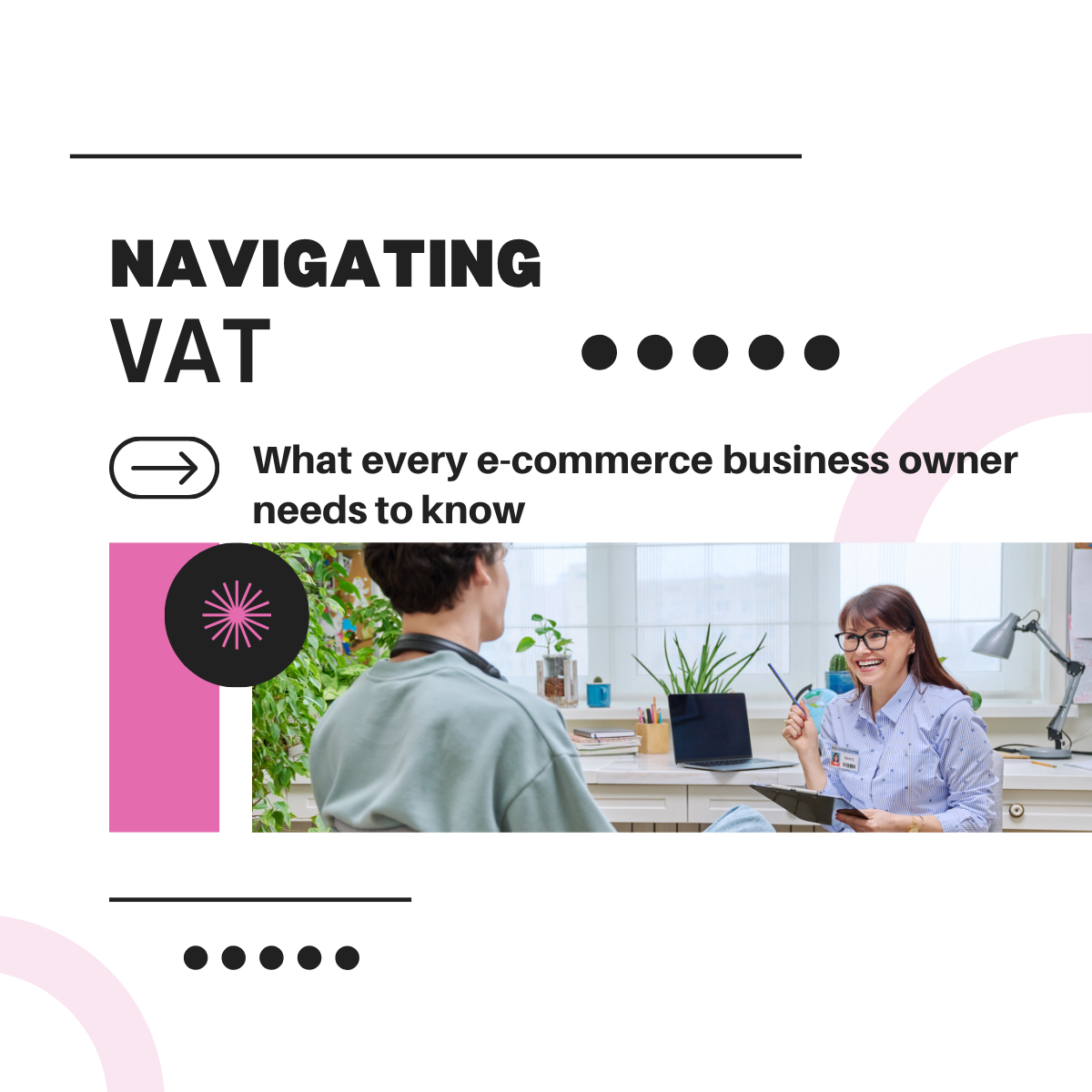Navigating VAT: What every e-commerce business owner needs to know
#StartingInBusiness • #FinancialPlanning • #TaxTips • #VAT • #BusinessExpenses • #BusinessGrowth • 22-Oct-2024 04:56:20 • Written by: Ewa Jakeman

As a solo e-commerce entrepreneur, you’re likely wearing multiple hats—handling product listings, managing customer service, and coordinating shipping—leaving little time to stay on top of sales tax compliance. If calculating and filing VAT or sales tax feels overwhelming or you find yourself missing deadlines, you’re not alone. Many small business owners struggle with keeping up with the ever-changing tax landscape while juggling other business priorities. The good news? Managing sales tax doesn't have to be a drain on your time and energy. With the right strategies and expert support, you can streamline your processes and avoid costly mistakes.
Understanding Sales Tax for E-Commerce in the UK
For UK-based e-commerce sellers, Value Added Tax (VAT) is a critical aspect of your business finances. But many solo business owners feel uncertain about the details—when to register, how much VAT to charge, and the rules for selling internationally. Even small mistakes can lead to penalties or overpayments, cutting into your profits.
Some common challenges faced by e-commerce entrepreneurs include:
- Understand VAT Registration threshold: Once your sales exceed the £90,000 sales threshold, VAT registration is a must. The calculation is on a 12-month rolling period, so do not confuse it with your yearly turnover checks. There might be times when it would be advantageous to register earlier too, for example, if you import your stock and want to take advantage of the PVA scheme on imports!
- Manage Cross-Border Sales: Familiarize yourself with VAT rules for selling across borders, as different countries have varying requirements that can affect your pricing and compliance. IOSS EU VAT scheme makes your EU sales reporting simpler, allowing you to charge your EU customers their country VAT so they don’t have to worry about VAT on imported goods.
- Utilize VAT Schemes: Explore special VAT schemes, such as the Flat Rate Scheme, which can simplify the VAT process and potentially reduce your tax liability.
- Stay Compliant: Ensure timely submission of VAT returns and payments to avoid fines. Set reminders or use accounting software to meet deadlines effortlessly
- Understand Input VAT: Be aware of the VAT you can reclaim on business-related purchases, which can significantly reduce your overall tax burden.
- Leverage Technology: Use accounting software that automates VAT calculations and provides real-time insights into your VAT obligations, enhancing efficiency and accuracy.
- Record-Keeping and Filing: Maintain detailed and organized records of all transactions, as these are crucial for accurate VAT calculations and audits. Utilize digital tools to streamline this process.
How a Skilled Accountant Can Help
Navigating these challenges on your own is stressful and time-consuming. But a skilled accountant, especially one familiar with e-commerce, can make sales tax compliance easier and free you up to focus on growing your business. Here’s how an accountant can support your solo e-commerce venture:
- VAT Registration & De-registration: We handle the full VAT registration process, making sure you're compliant from day one. If your business fluctuates around the threshold, we can also advise on voluntary registration or the best time to deregister, ensuring you aren’t paying VAT when you don’t need to.
- Automating Tax Processes: We can help you integrate VAT automation tools into your business. Platforms like Shopify and Amazon offer tax settings, but they don’t always handle everything. We ensure your accounting software (like Xero or QuickBooks) is properly synced, helping you track sales and VAT automatically.
- International VAT Compliance: Selling internationally brings in exciting opportunities, but different VAT rules in each country can be a minefield. Whether you’re navigating the EU’s One-Stop Shop (OSS) for cross-border sales or dealing with post-Brexit tax changes, we can advise you on the correct VAT rates and filing procedures for each country you sell in.
- Preventing VAT Penalties: Missing deadlines or filing inaccurate returns can result in costly penalties. With a dedicated accountant, you’ll have someone keeping track of deadlines and preparing accurate VAT returns for you, so you can avoid fines and late fees.
- VAT Relief & Reclaiming: A professional accountant can help you claim VAT back on eligible business expenses and purchases, boosting your cash flow. This is especially important for startups that invest heavily in new inventory or tech but may not be aware of all the VAT deductions they can claim.
Focus on Your Business, Not VAT
Handling VAT might seem like a daunting task, but it's a key part of keeping your business financially healthy and compliant. VAT is a vital part of your financial responsibilities and operations, and to be successful your business must be compliant with all the rules and regulations. But let's be honest, navigating the ins and outs of VAT can be time-consuming and a bit of a brain teaser. By passing this task to the experts, you not only ensure everything is ticked and tied but also free up your valuable time to focus on what truly matters—growing your business. Imagine having more time to brainstorm new ideas, connect with clients, or simply innovate without worrying about paperwork.
%20(transparent).png)
